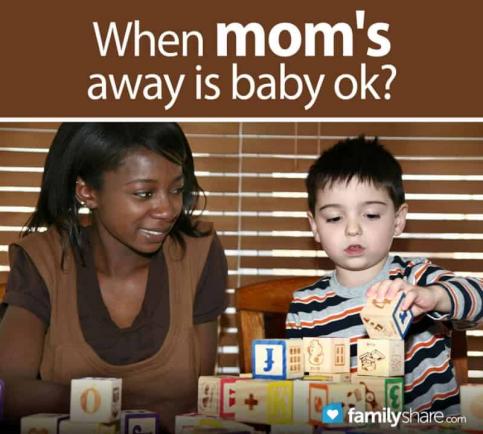
Sometimes, it is difficult for a parent to find the ideal childcare facility that takes care of her child as attentively as she would at home. While some issues may be minor and easily overlooked, keep in mind that you are your child's voice and advocate. If you do not speak up about issues that are bothering you in relation to the level of care your child is receiving, who will?
Dealing with the issue as soon as it comes to light is the best method of ensuring you receive a satisfactory outcome for all involved parties.
First, when you enroll your child in any new facility, make a point to find out the process for handling complaints. Many childcare facilities have developed their own set of procedures for handling grievances or complaints which can help guide you toward the most effective method of seeking a resolution for your concerns.
There are typically two types of issues that parents experience with their daycare providers.
-
Issues that are routinely identified as being against the rules and regulations that govern how a childcare facility should operate. Some of these could include inappropriate methods of discipline, too many children than the center is licensed to accommodate, and leaving children unsupervised.
-
Issues that are related to personal concerns that parents have about the care offered to their children, or differences in opinion concerning the best methods of caring for their child. Some of these could include not checking for soiled diapers frequently, not establishing a routine for the little ones, or not accommodating food requests.
It is important to note that if your child has food allergies, you should make the daycare center aware so the potential for accidental exposure to the allergen can be eliminated.
Resolving Issues, Swiftly
If the issues that are cause for concern are those that may be violating state laws or putting your child at risk of harm, you should immediately seek out alternative childcare. If the infractions are minor in nature, discuss them with the daycare's director so that she is aware of these concerns. If the issues are not resolved in a timely manner, you should again seek alternative childcare options for the benefit of your child. The correct authorities to handle such issues are the state childcare licensing department, and child protective services.
For issues that are more on a personal level, you will find that developing a positive relationship with your child's care providers and the director of the childcare facility can simplify the process for you. With proper communication and an established relationship, you can often deal with the majority of issues through a simple conversation at the onset of the concern. Communication is a key in ensuring that you avoid or greatly reduce complaints. Ideally, it should begin prior to your child's first day in the childcare facility. Communication can also lead to compromises that can often be worked out when both the parents and the caregivers have trust in one another, and have formed that positive relationship.
Consider the following tips when addressing problems with your daycare provider.
-
Do not approach the caregivers or daycare director with anger or harsh words. Instead, clearly identify each of your concerns and establish a solution that will work best for you. Then, adopt an approach that takes on more of a problem-solving approach, rather than an angry approach.
-
Be firm on your point-of-view on the issue. Also, give some thought on what you may agree to be a reasonable compromise.
-
Schedule an appropriate time and place to discuss your concerns with the caregivers or daycare director. It is not appropriate to hold the discussion in front of your children, or in front of other parents. Ask for a private chat in the hallway, or a meeting room.
-
Listen to the opinions or thoughts that are shared with you by the caregiver. Make sure you clarify all related facts so that both parties arrive at a mutual understanding of the issues.
-
Be certain you are adopting a tactful approach to the conversation. Avoid using an accusatory tone. This will help prevent the caregiver from going on the offensive, in lieu of holding a reasonable conversation.
Once you have reached an understanding of how the situation will be addressed and resolved, be sure to let the caregivers or daycare director know if the situation has, in your opinion, improved, or whether it has not at all progressed in a positive nature. If the situation doesn't improve, you may need to explore the possibility of looking for another daycare facility for your child.
Keep in mind that maintaining a positive and successful relationship with your daycare provider is a two-way street that requires your frequent involvement. Your child's care is not something you should have to compromise. Don't downplay issues that are, in fact, giving you cause for alarm. A diaper rash from not being changed frequently is not a minor issue, for example. While it is unlikely to threaten the life of your child, it does lay the foundation for potential neglect in other areas of caring for your child.
You are your child's voice. You are the only one who can determine what appropriate care is for your little one. Trust your instincts and react swiftly in a logical manner.

